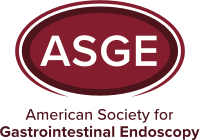Medical College of Wisconsin
Medical College of Wisconsin
Division of Gastroenterology & Hepatology
8701 Watertown Plank Road
Milwaukee, Wisconsin 53226
414-955-7015 (V)
1 Position Available
Program Type: Both ERCP & EUS
Authorized Administrative Official: Michelle Charlesworth (email)
Program Director: Kulwinder S. Dua, MD & Zachary L. Smith, DO (email)
Duration: 1 Year
Inclusive Dates of the Program: 7/1/2026 to 6/30/2027
Program Website: www.mcw.edu/departments/medicine/divisions/gastroenterology-and-hepatology/advanced-endoscopy-fellowship-program
Accepts applicants from outside of North America? No
Accepts applicants with J1 visas? No
Accepts applicants with H1B visas? Yes
Accepts applicants with E3 visas? No
Supervised ProceduresProcedure |
Faculty Involved in AEF Training | Total Annual Volume | Annual Volume with hands-on AEF Involvement |
|---|---|---|---|
| ERCP | 4 | >1000 | >300 |
| Diagnostic EUS | 4 | >700 | >250 |
| Deep enteroscopy | 4 | >60 | >20 |
| ESD | 0 | New | 10 |
| Bariatric endoscopy | 0 | 0 | 0 |
| POEM | 0 | 10 | 0 |
| Other (specify)
Enteral Stent Placement |
4 | 48 | >10 |
Unsupervised Trainee ActivitiesProcedure |
Value |
|---|---|
| General GI procedures (per year) | >250 |
| Inpatient general GI service (weeks/year) | 8 (call only) |
| Inpatient advanced endoscopy service (weeks/year) | 10 |
| Ambulatory clinics (per year) | 48 half days |
| Committed time for research (days/month) | 2.0 |
Requirements for Application
- Standard ASGE Application Packet
- ASGE Application
- Post-Undergraduate Education
- USMLE Scores
- Certification of Completion of Residency
- Prior to appointment in the advanced endoscopy fellowship, fellows should have completed a three-year ACGME-accredited gastroenterology fellowship
- Fellows from non-ACGME-accredited programs must have completed at least three years of gastroenterology education prior to starting the fellowship
- Personal Statement
- Curriculum Vitae
- 3 Letters of Reference
Additional Information about Program
Over the course of the fellowship, the trainee will be exposed to most areas of advanced endoscopy with the exception of submucosal dissection and primary bariatric therapies. The trainee should expect to have extensive hands-on experience under the supervision of five faculty members. The trainee’s salary is supported by the Clement J. Zablocki VA Medical Center (VAMC), and therefore, he/she will act as the supervising faculty for general GI endoscopy at the VAMC one and a half days per week.
Our faculty have expertise in a wide variety of endoscopic techniques and procedures. The trainee should expect to receive hands-on experience in several procedures and techniques including routine and complex ERCP (e.g. cholangioscopy, pancreatoscopy, hilar biliary obstruction, lithotripsy, ampullectomy), diagnostic EUS, interventional EUS (including transmural drainage of pancreatic fluid collections, celiac ganglion block/lysis, EUS-guided biliary access and drainage, EUS-guided gastroenterostomy), complex mucosal resection of large colorectal polyps (techniques include conventional, cold, underwater, and precut EMR), enteral stenting, management of leaks and fistulae, endoscopic eradication therapy for Barrett’s esophagus (EMR, RFA), and deep small bowel enteroscopy (single balloon only).
In addition to advanced endoscopic training, other clinical responsibilities include the following: one half-day of supervised outpatient clinic (primarily managing patients with pancreaticobiliary and endoscopic problems), ad hoc staffing of patients with fellows and residents on the inpatient pancreaticobiliary consult service, supervision of gastroenterology fellows during general endoscopy procedures, and participating in the general GI faculty call rotation (typically 4 weeks annually). The AEF at MCW emphasizes a multidisciplinary approach for many of the patients encountered during this training program. The trainee will interact frequently with providers from other disciplines, including surgical oncology and interventional radiology, as well as participate in a weekly multidisciplinary pancreaticobiliary conference.
Research and discovery are important aspects of an academic advanced endoscopy training program. The trainee is expected to conduct his/her own research project(s), from IRB submission to publication, under the mentorship of the AEF faculty. Prior to the start of the fellowship, a faculty member will contact the trainee to gauge areas of interest and begin to formulate a research plan for the year. The faculty will make every effort to support research endeavors of interest to the trainee instead of imposing projects upon him/her. It is the expectation that the trainee will present his/her research at national meetings and ultimately, all completed work will be submitted for publication in peer-reviewed journals. Additionally, the fellow will gain experience enrolling patients in several ongoing multicenter clinical trials. Protected time will be provided for academic development. The trainee will have one half day per week of protected time to support academic pursuits.
The trainee will work under the supervision of four faculty members in the section advanced endoscopy. Faculty members have a wide array of clinical and research expertise, affording the trainee a diverse group of mentors.
Please Note: All data in this program description is entered on a voluntary basis
